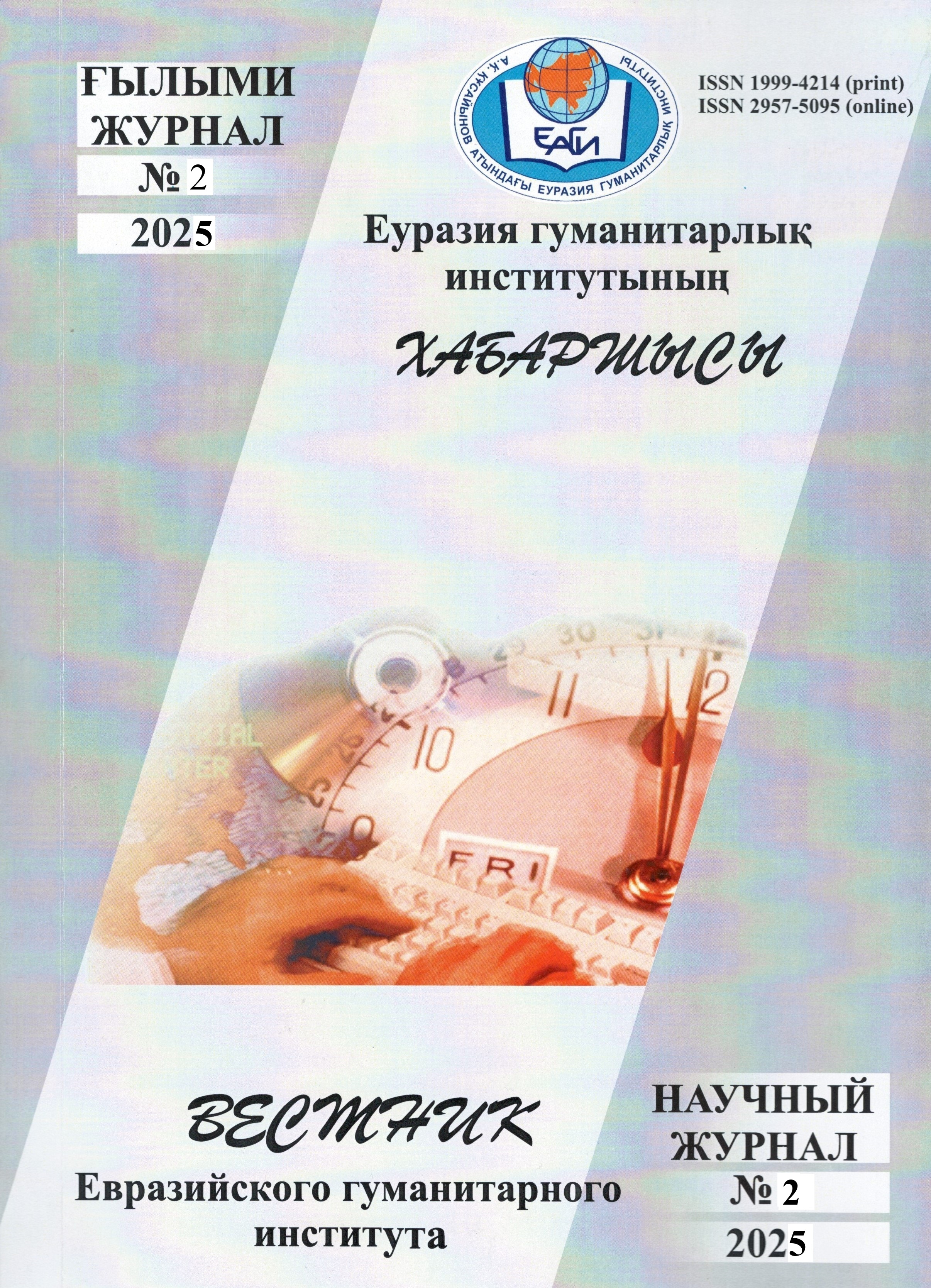PHILOSOPHICAL DEPTH OF MAGAZ RAZDANULY'S POETRY
DOI:
https://doi.org/10.55808/1999-4214.2025-2.13Keywords:
Magaz Razdanuly's poetry, philosophical depth, historical context, picture of the era, artistic skill.Abstract
The article analyzes the philosophically deep thoughts of Magaz Razdanuly's poetry. The purpose of the study is to reveal little-known aspects of Magaz's work. In particular, his poems reflecting various aspects of society, time and human nature are examined. For example, in the poems "Oert" ("Fire"), "Ok dayarlaushy" ("Gunsmith") the reality of society is revealed, and in the poems "Ayna aldynda" ("In front of the mirror"), "Tar" ("Crowned") the picture of the era in which he lived and worked is reflected. In the poems "Kulki" ("Laughter"), "Zhylau" ("Cry"), "Maktan" ("Pride") the author presents philosophical reflections on human essence. To achieve this goal, his poetry collections "Asular tolgauy" ("Hymn to the Passes"), "Uakyt" ("Time"), "Bosaga" ("Threshold"), "Erten" ("Tomorrow") are considered. Magaz spent 21 years of his life in a Chinese prison. Exploring his works written in prison and filled with truth, we learn the character of society, the essence of man and the true truthfulness of the time. To strengthen the theoretical basis of the study, the scientific works of domestic critics and literary scholars such as R. Syzdykova, Z. Serikkaliuly, E. Shaimerdenuly, as well as foreign scientists Remi Hess, Lo Genzy and Nan Fan were used as a method. The practical significance and value of the article lies in the fact that the results of the scientific work provide a material basis for further research into the poetry of M. Razdanuly. And this creates new opportunities for future researchers. The scientific novelty and results of the work are, firstly, that the philosophical depth of Magaz's poetry has been systematically studied for the first time. Secondly, the philosophical significance and historical context of the poet's poems written in prison have been revealed. Thirdly, in the process of analyzing Magaz's philosophically profound poems, the complex life reality that the poet himself went through is considered.


